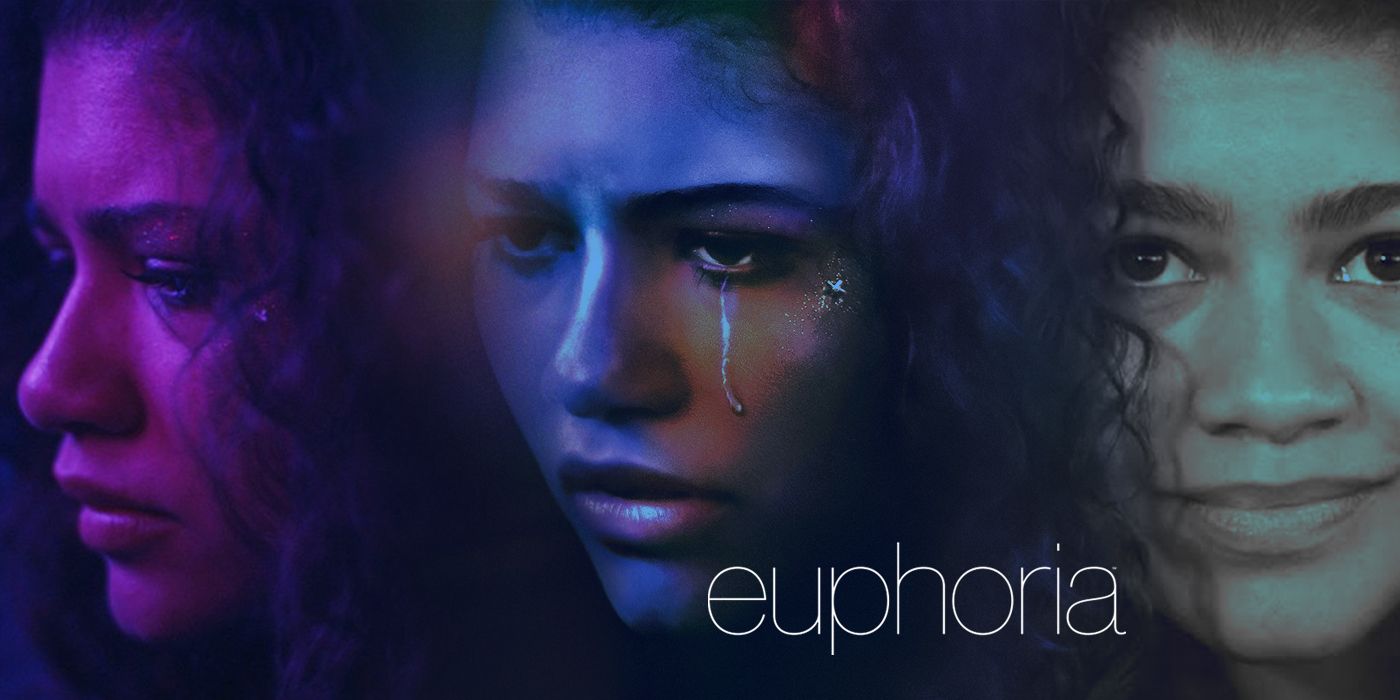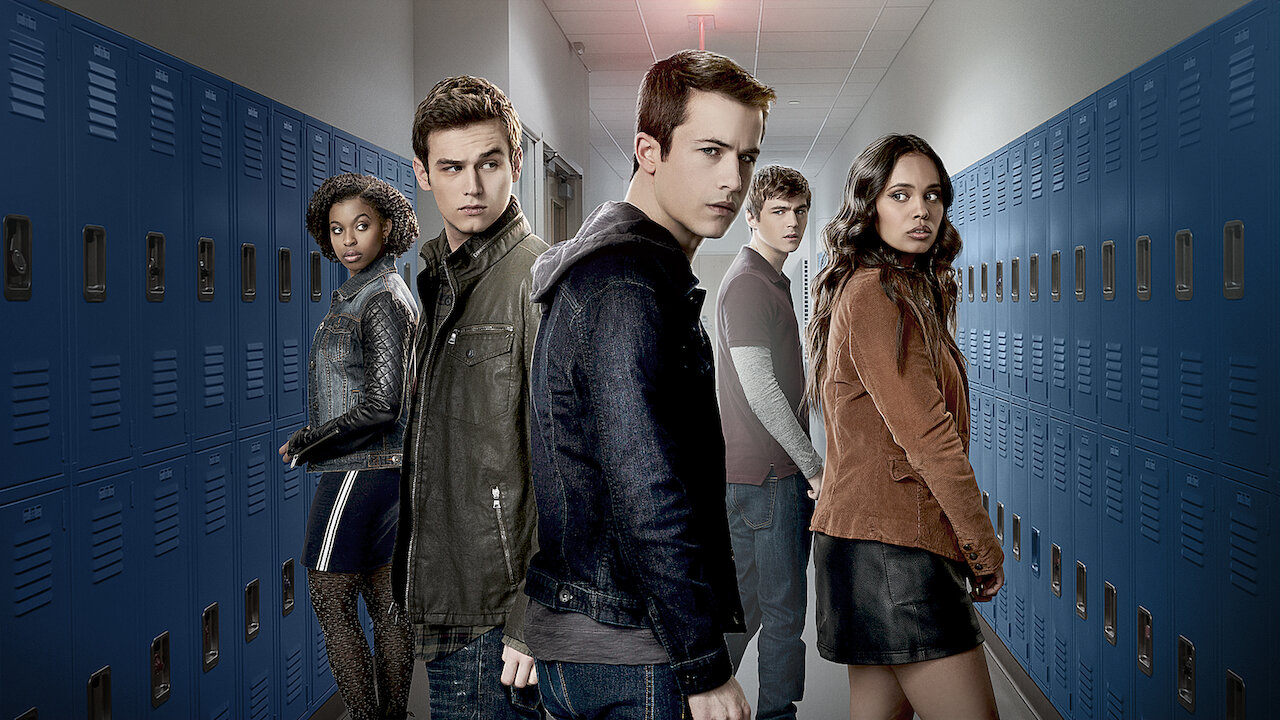"Media often portrays serious topics in line with trauma, abuse, and self harm, and in many cases these are the focus points of shows, movies, and or books. Whether or not said shows, movies, and books are able to be sensitive and realistic in these depictions is another story. So how do you avoid romanticizing serious topics of harm?" --Lola Christ, 8th grade
One show notorious for highlighting substance abuse in its plot is Euphoria. Many agree the show is able to walk the thin line of not glamorizing the variety of abuse situations in its scenes, while still staying true to the reality of the topic. In an article by Variety.com, creator of Euphoria, Sam Levinson commented, “I think any time you put anything on screen, you run the risk of glamorizing it just by the nature of it being on screen,” Levinson said. “I don’t want [to be triggering], but we also have to be authentic about it. … I think people can tell if we’re pulling our punches and not showing the relief that drugs can be. It starts to lose its impact.”
The show's main character, Rue Bennet, played by Zendaya, struggles with addiction. Rue comes into a codependent relationship with Jules, played by co-star Hunter Schafer. The show is able to present the two’s independent struggles and all the ways they need each other to work through them. It doesn’t romanticize what either are going through, and it doesn’t say the relationship is healthy, either. Characters in the show frequently point out how it won’t end well for the two, but they ignore the warnings.
One of the reasons the show was able to be so successful in being sensitive about these situations was because of intimacy coordinator Amanda Blumenthal. She was praised for her role in helping make sure all depictions of abuse, substance or not, were shot in good taste. I think Euphoria has been able to depict that despite drugs appearing seemingly entertaining, they have other long-lasting, negative effects. This includes scenes of Rue overdosing and how it affects her younger and easily influenced sister. We see scenes of Rue waking up to find herself in the hospital, of her drifting and fighting with her mother over her use of drugs, as well as her sabotaging her relationships with friends over the matter. Sure, drugs can cause relief for many, but as Rue says there’s a very small window of coolness, and when you cross it it is no longer cool anymore.
The show's main character, Rue Bennet, played by Zendaya, struggles with addiction. Rue comes into a codependent relationship with Jules, played by co-star Hunter Schafer. The show is able to present the two’s independent struggles and all the ways they need each other to work through them. It doesn’t romanticize what either are going through, and it doesn’t say the relationship is healthy, either. Characters in the show frequently point out how it won’t end well for the two, but they ignore the warnings.
One of the reasons the show was able to be so successful in being sensitive about these situations was because of intimacy coordinator Amanda Blumenthal. She was praised for her role in helping make sure all depictions of abuse, substance or not, were shot in good taste. I think Euphoria has been able to depict that despite drugs appearing seemingly entertaining, they have other long-lasting, negative effects. This includes scenes of Rue overdosing and how it affects her younger and easily influenced sister. We see scenes of Rue waking up to find herself in the hospital, of her drifting and fighting with her mother over her use of drugs, as well as her sabotaging her relationships with friends over the matter. Sure, drugs can cause relief for many, but as Rue says there’s a very small window of coolness, and when you cross it it is no longer cool anymore.
Euphoria’s elegant approach to their subject matter is ever more apparent when you see TV shows that aren’t able to achieve the same thing. One such example is Netflix’s original series, 13 Reasons Why, produced by Selina Gomez. The show is about a teenage girl named Hannah Baker who is driven to suicide by her peers and leaves 13 tapes about each reason she did it. Each tape ends up being about a person she felt caused her to do what she did. The whole show is a revenge fantasy.
As written in the article “13 REASONS WHY’: A ROMANTICIZED LOOK AT SUICIDE,” “In the end, her peers come to feel sorry for what they did to drive her to her tragic decision. It’s revenge by suicide — a dangerous glamorization of a real temptation for many teens.” It makes the characters involved grow and become better people because she did it, implying it was the only way they could improve, essentially encouraging it.
When portraying mental instability in the media, the goal is to create a balance, like a tightrope. For example, in Euphoria, the scenes of Rue’s actual drug use is shot in a very stylized fashion, but still manages to ground you in the reality that her use of substance causes her family, friends, and others around her to be torn apart. They are able to do this with scenes of her mother and her arguing in front of Rue’s sister, and through her AA mentor, Ali, who as a fellow recovering addict, mentions to Rue later will be scarred for life and never able to trust again. In another, we see Jules giving Rue an ultimatum and that she doesn’t want to have a best friend who’s going to die. Which is another way the show is able to topple the stigma that drugs are all fun and games, they make it very clear that if Rue isn’t able to stop, she will die.
Again, in comparison, 13 Reasons Why does one thing wrong: they don't include those moments. Hannah is shown as a girl above it all, that she sees something no one else can and that when she kills herself and creates the tapes she’s gifting everyone else with that knowledge. As put well by professionals at "13 Reasons Why" Netflix Series: Considerations for Educators, “We do not recommend that vulnerable youth, especially those who have any degree of suicidal ideation, watch this series. Its powerful storytelling may lead impressionable viewers to romanticize the choices made by the characters and/or develop revenge fantasies.” Many agree they fall into the tropes that cause it to be romanticized.
In another article regarding the show, Kalhan Rosenblatt wrote, “Sequences of terrible things happen to Hannah, and we don’t get a feel for her internalization until she kills herself,” Dr. Victor Schwartz, medical director of the JED Foundation, told NBC News. “None of that stuff is made clear because it’s focused on the horrible things people have done to her. The whole thing is an extended revenge fantasy.”
I personally believe the best way to display sensitive types of topics is by not being afraid to show the harmful results of the character. Aside from Euphoria, another show that succeeds in that balance is Bojack Horseman. These shows are able to balance how the characters involved feel about the situations, as well as the reality of them. In the Entertainment Tonight article, “5 Series and Movies That Actually Portray Mental Illness Well,” Janne Schellingen writes about Bojack Horseman, “Even though the series is animated and uses characters that don’t exist, the series depicts depression, addiction, and trauma very realistically.”
In conclusion, being able to identify signs of accurate portrayals of self harm, addiction, and trauma is important, as well as avoiding television that isn’t able to, because it becomes harmful. Especially to impressionable teens, which are commonly the target audience for those types of TV.



